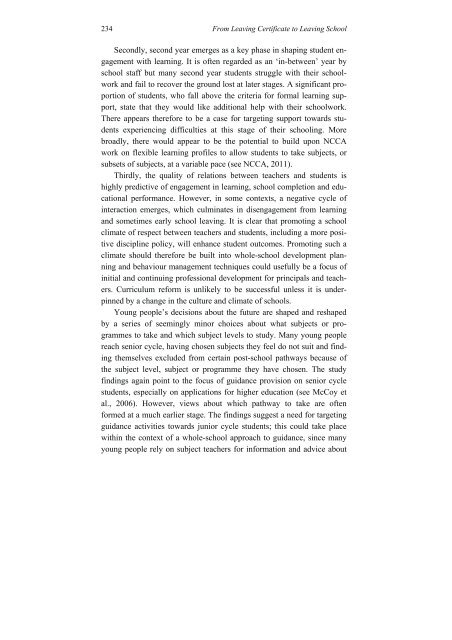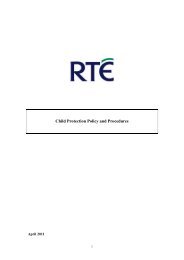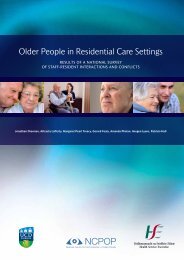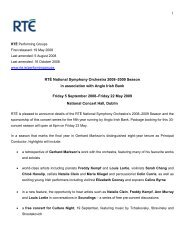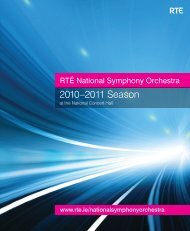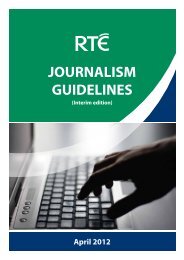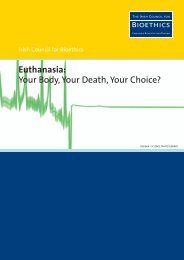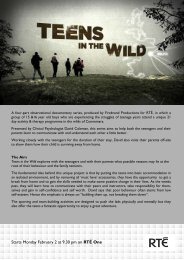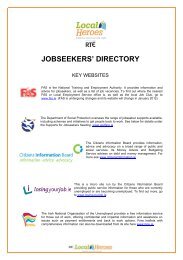From Leaving CertiFiCate to Leaving SChooL a Longitudinal Study ...
From Leaving CertiFiCate to Leaving SChooL a Longitudinal Study ...
From Leaving CertiFiCate to Leaving SChooL a Longitudinal Study ...
You also want an ePaper? Increase the reach of your titles
YUMPU automatically turns print PDFs into web optimized ePapers that Google loves.
234<br />
<strong>From</strong> <strong>Leaving</strong> Certificate <strong>to</strong> <strong>Leaving</strong> School<br />
Secondly, second year emerges as a key phase in shaping student engagement<br />
with learning. It is often regarded as an ‘in-between’ year by<br />
school staff but many second year students struggle with their schoolwork<br />
and fail <strong>to</strong> recover the ground lost at later stages. A significant proportion<br />
of students, who fall above the criteria for formal learning support,<br />
state that they would like additional help with their schoolwork.<br />
There appears therefore <strong>to</strong> be a case for targeting support <strong>to</strong>wards students<br />
experiencing difficulties at this stage of their schooling. More<br />
broadly, there would appear <strong>to</strong> be the potential <strong>to</strong> build upon NCCA<br />
work on flexible learning profiles <strong>to</strong> allow students <strong>to</strong> take subjects, or<br />
subsets of subjects, at a variable pace (see NCCA, 2011).<br />
Thirdly, the quality of relations between teachers and students is<br />
highly predictive of engagement in learning, school completion and educational<br />
performance. However, in some contexts, a negative cycle of<br />
interaction emerges, which culminates in disengagement from learning<br />
and sometimes early school leaving. It is clear that promoting a school<br />
climate of respect between teachers and students, including a more positive<br />
discipline policy, will enhance student outcomes. Promoting such a<br />
climate should therefore be built in<strong>to</strong> whole-school development planning<br />
and behaviour management techniques could usefully be a focus of<br />
initial and continuing professional development for principals and teachers.<br />
Curriculum reform is unlikely <strong>to</strong> be successful unless it is underpinned<br />
by a change in the culture and climate of schools.<br />
Young people’s decisions about the future are shaped and reshaped<br />
by a series of seemingly minor choices about what subjects or programmes<br />
<strong>to</strong> take and which subject levels <strong>to</strong> study. Many young people<br />
reach senior cycle, having chosen subjects they feel do not suit and finding<br />
themselves excluded from certain post-school pathways because of<br />
the subject level, subject or programme they have chosen. The study<br />
findings again point <strong>to</strong> the focus of guidance provision on senior cycle<br />
students, especially on applications for higher education (see McCoy et<br />
al., 2006). However, views about which pathway <strong>to</strong> take are often<br />
formed at a much earlier stage. The findings suggest a need for targeting<br />
guidance activities <strong>to</strong>wards junior cycle students; this could take place<br />
within the context of a whole-school approach <strong>to</strong> guidance, since many<br />
young people rely on subject teachers for information and advice about


